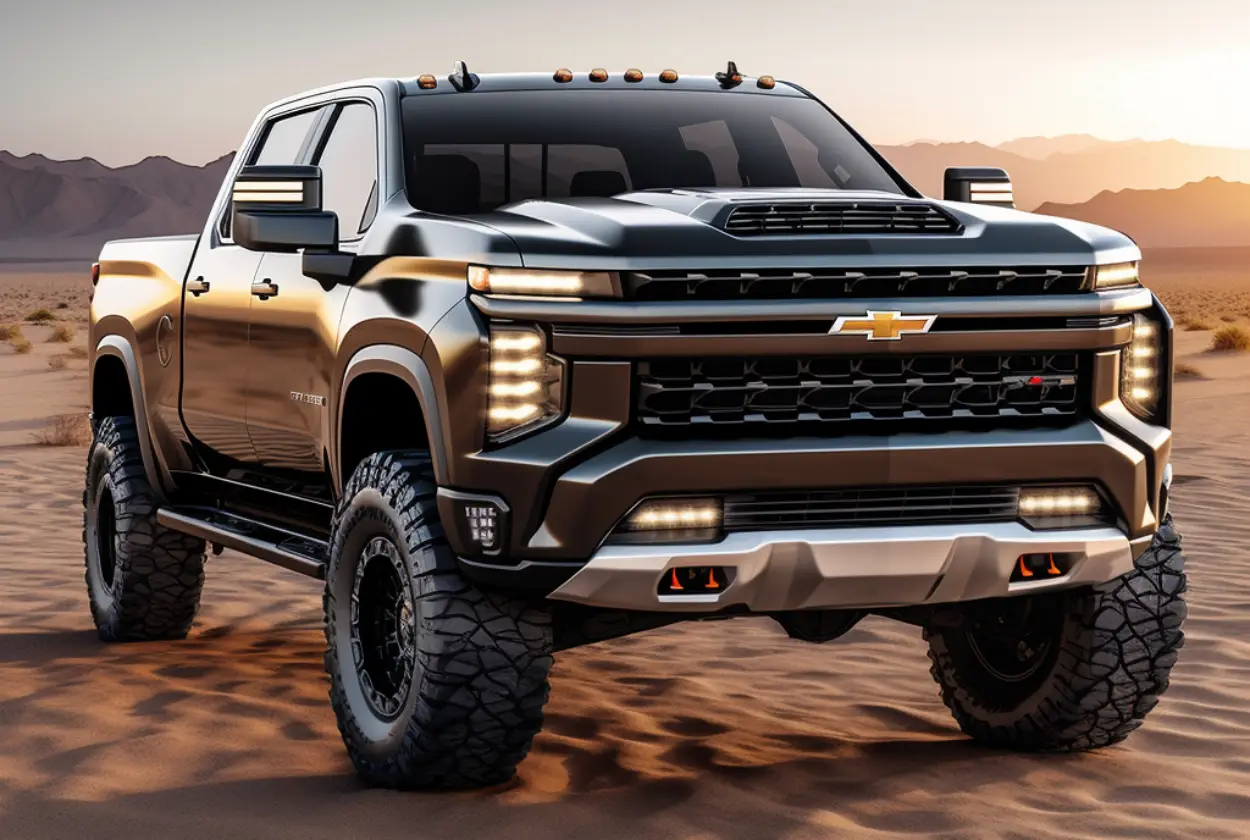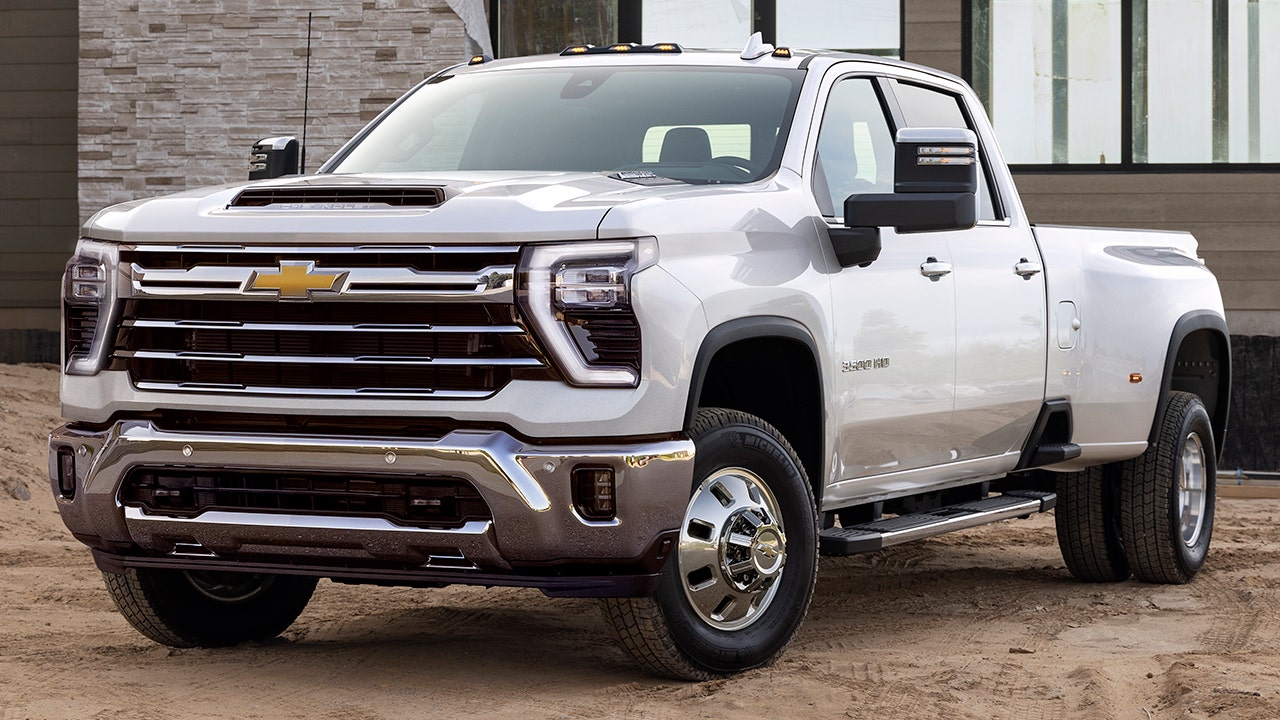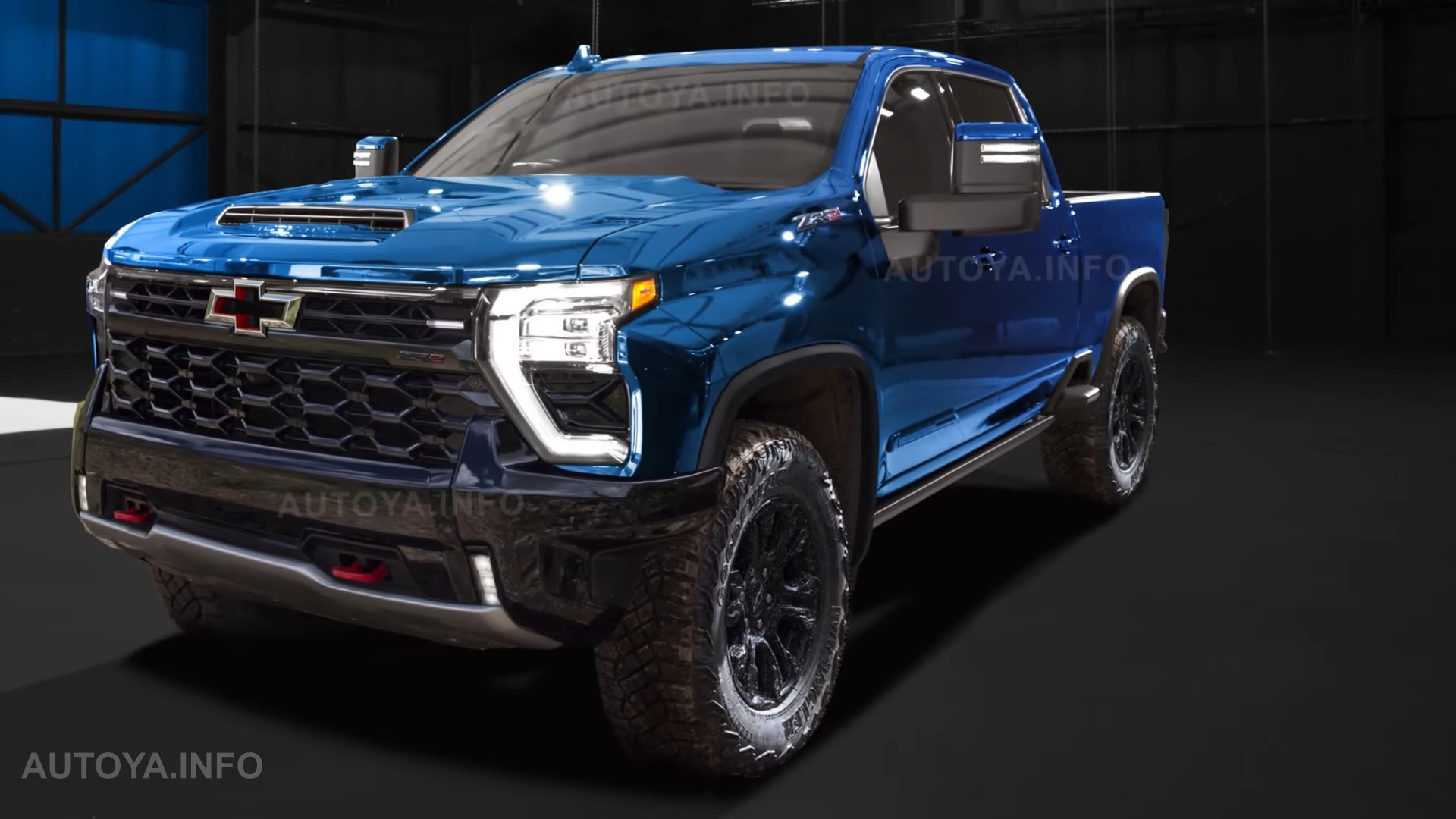Chevy Or GMC Trucks For Sale: A Comprehensive Buyer’s Guide types.truckstrend.com
The American truck market is dominated by a few iconic names, and among the most prominent are Chevrolet and GMC. For decades, these two General Motors brands have produced some of the most robust, versatile, and popular trucks on the road. Whether you’re a contractor needing a reliable workhorse, a family looking for a capable hauler, or an adventurer seeking off-road prowess, a Chevy Silverado or GMC Sierra (and their smaller counterparts, the Colorado and Canyon) likely appears high on your list.
However, for many prospective buyers, the choice between a Chevy and a GMC can be a perplexing one. They share platforms, powertrains, and often, core capabilities, leading to the common question: what’s the real difference, and which one is right for me? This comprehensive guide aims to demystify the process of finding and purchasing a Chevy or GMC truck, offering insights into their distinctions, what to consider, where to look, and how to make an informed decision that perfectly suits your needs and budget.
Chevy Or GMC Trucks For Sale: A Comprehensive Buyer’s Guide
Understanding the Sibling Rivalry: Chevrolet vs. GMC
At their core, Chevrolet and GMC trucks are built on the same architecture, sharing engines, transmissions, frames, and many mechanical components. This shared heritage is a significant advantage, as it means both brands benefit from GM’s extensive engineering and manufacturing prowess, ensuring reliability and capability across the board. Yet, despite their similarities, GM has strategically positioned these two brands to appeal to slightly different demographics.
Chevrolet (e.g., Silverado, Colorado):
Chevrolet trucks are often perceived as the more mainstream, everyman’s truck. They are designed with a broad appeal, catering to a wide range of buyers from commercial fleets to individual consumers. Chevy’s styling tends to be bolder, with more pronounced lines and a rugged, no-nonsense aesthetic. Their trim levels, such as WT (Work Truck), Custom, LT, RST, LTZ, and High Country, offer a progression from utilitarian to luxurious, with a strong emphasis on practical functionality and value. Chevrolet often focuses on innovative features that enhance utility and everyday usability.
GMC (e.g., Sierra, Canyon):
GMC, standing for "General Motors Truck Company," positions itself with a "Professional Grade" philosophy. This implies a more refined, premium, and often more luxurious offering than its Chevy counterpart. While sharing mechanicals, GMC trucks typically feature more upscale exterior styling, with a greater use of chrome accents, distinctive grille designs, and more sophisticated lighting. Inside, GMCs often boast higher-quality materials, more advanced technology features as standard, and exclusive trim levels like the popular Denali, which epitomizes luxury and advanced features, and the more rugged AT4, designed for off-road enthusiasts seeking premium amenities. The target demographic for GMC is often buyers willing to pay a slight premium for a more upscale feel and exclusive features.
Key Differentiators Summarized:
- Styling: Chevy tends to be more aggressive/rugged; GMC more refined/premium.
- Interior: GMC often uses higher-grade materials and offers more standard luxury features on comparable trims.
- Trim Levels: While similar in capability, GMC’s top-tier Denali often offers a more exclusive package than Chevy’s High Country, and the AT4 is a unique blend of off-road capability and luxury.
- Price: GMCs generally carry a slightly higher MSRP than similarly equipped Chevys, reflecting their premium positioning.


Ultimately, the choice often comes down to personal preference for aesthetics, interior feel, and whether the added luxury and exclusivity of GMC justify the potentially higher price tag. Both offer exceptional capability and reliability.
Types of Chevy and GMC Trucks Available
General Motors offers a diverse lineup of trucks under both the Chevrolet and GMC banners, catering to a wide spectrum of needs.

Light-Duty Full-Size Pickups:
- Chevrolet Silverado 1500 / GMC Sierra 1500: These are the bread and butter of the lineup, representing the best-selling models. They are highly versatile, offering a balance of towing capacity, payload, passenger comfort, and fuel efficiency suitable for daily driving, light work, and family duties. They come with various engine options, including V6s, V8s, and turbo-diesel engines, and a choice of cab configurations (Regular, Double/Extended, Crew) and bed lengths (Short, Standard, Long).
-
Heavy-Duty Full-Size Pickups:
- Chevrolet Silverado 2500HD/3500HD / GMC Sierra 2500HD/3500HD: Designed for serious towing and hauling, these heavy-duty trucks are built on a stronger frame, feature more robust suspension components, and are equipped with more powerful engine options, primarily large gasoline V8s and the formidable Duramax diesel engine. The 3500HD models often come with dual rear wheels (dually) for maximum stability and towing capacity. These are ideal for commercial use, towing large RVs or trailers, and heavy-duty work.
-
Mid-Size Pickups:
- Chevrolet Colorado / GMC Canyon: Smaller and more maneuverable than their full-size counterparts, the Colorado and Canyon offer a compelling option for those who don’t need the full capability of a 1500 series truck. They are easier to park, more fuel-efficient, and still offer respectable towing and payload capacities. They are popular for urban driving, light off-roading, and as versatile lifestyle vehicles. Engine options typically include four-cylinder, V6, and sometimes diesel engines.
Key Configurations to Consider:
- Cab Style:
- Regular Cab: Two doors, single row of seating, maximum bed length for a given wheelbase. Best for work or minimal passenger needs.
- Extended Cab (Double Cab for Chevy, Extended Cab for GMC): Four doors (rear doors are smaller, often rear-hinged), two rows of seating, but rear legroom is limited. Good for occasional rear passengers.
- Crew Cab: Four full-size doors, spacious second row. Ideal for families or regularly transporting multiple adults.
- Bed Length:
- Short Bed: Easiest to maneuver, typically 5’8" or 6’6".
- Standard Bed: Common choice, usually 6’6".
- Long Bed: Maximum cargo capacity, typically 8′.
- Powertrain:
- Gasoline Engines: Range from efficient V6s to powerful V8s, offering good performance and lower upfront costs.
- Diesel Engines (Duramax): Known for immense torque, superior towing capability, and often better fuel economy (especially when towing) but come with a higher purchase price and potentially higher maintenance costs.
- Drivetrain:
- 2WD (Two-Wheel Drive): More fuel-efficient, lower cost, suitable for pavement driving.
- 4WD (Four-Wheel Drive): Essential for off-roading, inclement weather, or slippery conditions, but adds weight and cost.
Key Considerations When Buying Your Truck
Making the right choice involves more than just picking a brand. A thoughtful evaluation of your needs, budget, and the vehicle’s condition is crucial.
-
Define Your Needs and Intended Use:
- Work Truck: Do you need maximum payload or towing? Heavy-duty models or specific bed configurations might be necessary.
- Family Vehicle: Crew cab for passenger comfort, safety features, infotainment systems.
- Daily Driver/Commuter: Mid-size or light-duty with a focus on fuel efficiency and maneuverability.
- Off-Roading/Adventure: 4WD, off-road packages (Z71 for Chevy, AT4 for GMC), higher ground clearance.
- Towing/Hauling: Max towing capacity, trailering packages, integrated brake controller, diesel engine considerations.
-
New vs. Used: The Great Debate:
- New Trucks:
- Pros: Full warranty, latest technology, customizable options, no prior owner history, often lower financing rates.
- Cons: Higher purchase price, rapid depreciation in the first few years.
- Used Trucks:
- Pros: Significant cost savings, depreciation already occurred, wider selection of model years and trims, potentially lower insurance.
- Cons: No manufacturer warranty (unless CPO), potential for hidden mechanical issues, wear and tear, older technology.
- New Trucks:
-
Set a Realistic Budget:
- Purchase Price: This is just the starting point.
- Insurance: Trucks often have higher insurance premiums.
- Maintenance: Factor in routine servicing, tires, and potential repairs.
- Fuel Costs: Larger engines and heavy vehicles consume more fuel.
- Registration & Taxes: Vary by state.
- Financing: Understand interest rates (APR), loan terms, and your total cost over the loan’s life.
-
Condition and History (Especially for Used Trucks):
- Vehicle History Report (CARFAX/AutoCheck): Essential for used trucks. Check for accidents, flood damage, salvage titles, service history, and odometer discrepancies.
- Professional Pre-Purchase Inspection (PPI): Have a trusted mechanic inspect the truck before buying, even if it looks good. They can spot hidden issues.
- Test Drive: Drive the truck extensively – city, highway, rough roads. Listen for unusual noises, check braking, acceleration, steering, and all electrical components.
- Rust: Inspect the frame, bed, wheel wells, and rocker panels, especially in regions with harsh winters.
- Maintenance Records: Ask for detailed service records to understand how well the truck was maintained.
-
Features and Technology:
- Infotainment: Touchscreen size, Apple CarPlay/Android Auto, navigation.
- Safety Features: Advanced Driver-Assistance Systems (ADAS) like blind-spot monitoring, lane-keeping assist, adaptive cruise control, automatic emergency braking.
- Comfort: Heated/ventilated seats, power seats, leather upholstery, dual-zone climate control.
- Utility Features: Integrated bed lighting, power outlets in the bed, multi-function tailgates (Multi-Pro for GMC, Multi-Flex for Chevy), trailer cameras, bed liners.
Where to Find Chevy and GMC Trucks For Sale
The market for these popular trucks is vast, offering several avenues for purchase.
-
Authorized Dealerships (Chevrolet/GMC):
- New Trucks: Full selection of new models, factory warranties, financing options, trade-in capabilities.
- Certified Pre-Owned (CPO) Trucks: Used trucks that meet strict age and mileage requirements, undergo multi-point inspections, and come with extended warranties from the manufacturer. Offers a balance between new and used.
- Used Inventory: Dealerships also sell non-CPO used trucks of various makes and models.
- Pros: Reliability, financing, trade-ins, after-sales support.
- Cons: Generally higher prices than private sellers.
-
Online Marketplaces and Listing Sites:
- Major Platforms: AutoTrader, Cars.com, Kelley Blue Book (KBB), Edmunds. These aggregate listings from dealerships and private sellers nationwide.
- Local Marketplaces: Facebook Marketplace, Craigslist. Often feature private sellers and can yield good deals, but require more caution.
- Pros: Vast selection, easy comparison, potential for lower prices from private sellers.
- Cons: "Buyer beware" for private sales, scam potential, no warranty.
-
Private Sellers:
- Directly buying from an individual owner.
- Pros: Often the lowest prices as there’s no dealership markup, direct negotiation.
- Cons: No warranty, "as-is" sale, more legwork for inspections and paperwork, higher risk of undisclosed issues.
-
Auctions:
- Public Auctions: Can be a source for deeply discounted trucks, including repossessions or fleet vehicles.
- Dealer Auctions: Typically require a dealer license but some are open to the public.
- Pros: Potentially very low prices.
- Cons: High risk, "as-is" sales, often no opportunity for thorough inspection, vehicles may have significant issues.
Tips for a Successful Purchase
- Do Your Homework: Research specific model years, common issues, recall history (NHTSA website), and market values for the trucks you’re considering.
- Know Your Credit Score: This impacts your financing options and interest rates.
- Get Pre-Approved for a Loan: Shopping for financing before you visit a dealership gives you leverage and a clear budget.
- Negotiate Confidently: Don’t be afraid to haggle on price, especially for used vehicles. Be prepared to walk away if the deal isn’t right.
- Consider a Trade-In Wisely: Research your current vehicle’s trade-in value beforehand (KBB, Edmunds). Sometimes selling privately yields more, but trading in is convenient.
- Review All Paperwork: Read the purchase agreement, warranty details, and financing terms carefully before signing.
- Factor in Ongoing Costs: Remember insurance, fuel, and maintenance beyond the purchase price.
Common Challenges and Solutions
- Finding the "Perfect" Truck: Compromise is often necessary. Prioritize your absolute must-haves and be flexible on less critical features.
- Overpaying: Thorough market research and patient negotiation are your best tools. Don’t rush into a purchase.
- Hidden Mechanical Issues (Used): A comprehensive pre-purchase inspection by an independent mechanic is your strongest defense.
- Financing Difficulties: Improve your credit score, save for a larger down payment, or explore different lenders (credit unions often offer competitive rates).
- Post-Purchase Maintenance: Adhere to the manufacturer’s recommended service schedule. A well-maintained truck will last longer and hold its value better.
Table of Estimated Price Ranges for Chevy & GMC Trucks (New & Used)
Note: Prices are highly variable based on location, trim level, options, condition, mileage, and market demand. These are general estimates and should be used as a guideline only.
| Model (Chevy/GMC) | New Price Range (MSRP) | Used Price Range (1-3 Yrs Old) | Used Price Range (5-7 Yrs Old) | Key Features/Notes |
|---|---|---|---|---|
| Mid-Size Trucks | ||||
| Colorado / Canyon | $29,000 – $55,000+ | $25,000 – $45,000 | $18,000 – $35,000 | More maneuverable, fuel-efficient, good for light duty/lifestyle. |
| Light-Duty Full-Size | ||||
| Silverado 1500 / Sierra 1500 | $37,000 – $75,000+ | $35,000 – $65,000 | $25,000 – $45,000 | Most popular, versatile, balance of capability & comfort. |
| Heavy-Duty Full-Size | ||||
| Silverado 2500HD/3500HD / Sierra 2500HD/3500HD | $45,000 – $90,000+ | $40,000 – $80,000 | $30,000 – $60,000 | Max towing/hauling, robust build, ideal for commercial/heavy loads. |
Frequently Asked Questions (FAQ)
Q1: What’s the main difference between Chevy and GMC trucks?
A1: Mechanically, they are very similar, sharing platforms and powertrains. The primary differences lie in styling (GMC tends to be more refined/premium), interior materials, and specific trim levels (GMC’s Denali and AT4 are unique). GMC typically carries a slightly higher price tag due to its premium positioning.
Q2: Is a used Chevy or GMC truck a good buy?
A2: Yes, both brands are known for their durability and reliability, making them excellent choices in the used market. However, a thorough pre-purchase inspection and vehicle history report are crucial to ensure you’re getting a well-maintained vehicle.
Q3: How much can I expect to pay for a new Silverado or Sierra?
A3: Prices vary wildly depending on the trim level, engine, drivetrain (2WD/4WD), and optional features. A base model might start around $37,000, while top-tier trims like the High Country or Denali can easily exceed $75,000, and even approach $90,000 for highly optioned HD models.
Q4: What are the common problems with these trucks?
A4: While generally reliable, like any vehicle, they can have common issues. Older models (pre-2014) might have Active Fuel Management (AFM)/Dynamic Fuel Management (DFM) lifter issues, and some earlier transmissions had known quirks. Rust on frames and body panels can be a concern in salt-belt states. Always research specific model years for known recalls or common complaints.
Q5: Do Chevy and GMC trucks hold their value well?
A5: Yes, full-size and heavy-duty pickups, especially in good condition and with desirable configurations (like Crew Cab 4WD), tend to hold their value very well. They are in high demand, which contributes to strong resale values.
Q6: Should I buy a gas or diesel engine?
A6: Choose based on your primary use. Gasoline engines are generally less expensive to buy, maintain, and refuel, making them suitable for most daily driving, light towing, and general use. Diesel engines (Duramax) offer superior torque, making them ideal for heavy towing and hauling, often providing better fuel economy when under load. However, they come with a higher initial cost and potentially more expensive maintenance.
Q7: What does "Certified Pre-Owned" (CPO) mean?
A7: CPO vehicles are used trucks that have undergone a rigorous multi-point inspection by the manufacturer (GM, in this case), meet specific age and mileage criteria, and come with an extended manufacturer-backed warranty. They offer a middle ground between a new and a standard used vehicle, providing greater peace of mind than a private sale.
Conclusion
The decision between a Chevy and a GMC truck, whether new or used, is a highly personal one. Both brands offer exceptional vehicles renowned for their durability, capability, and widespread availability. Your choice will ultimately hinge on your specific needs, aesthetic preferences, desired level of luxury, and budget.
By understanding the subtle distinctions between Chevrolet’s rugged functionality and GMC’s "Professional Grade" refinement, carefully evaluating your intended use, setting a realistic budget, and conducting thorough research, you can confidently navigate the market. Remember to prioritize a comprehensive inspection for used vehicles and leverage available resources like history reports and pre-purchase checks. With the right approach, you’ll soon find yourself behind the wheel of a Chevy or GMC truck that perfectly fits your lifestyle and drives you toward your next adventure or project.
